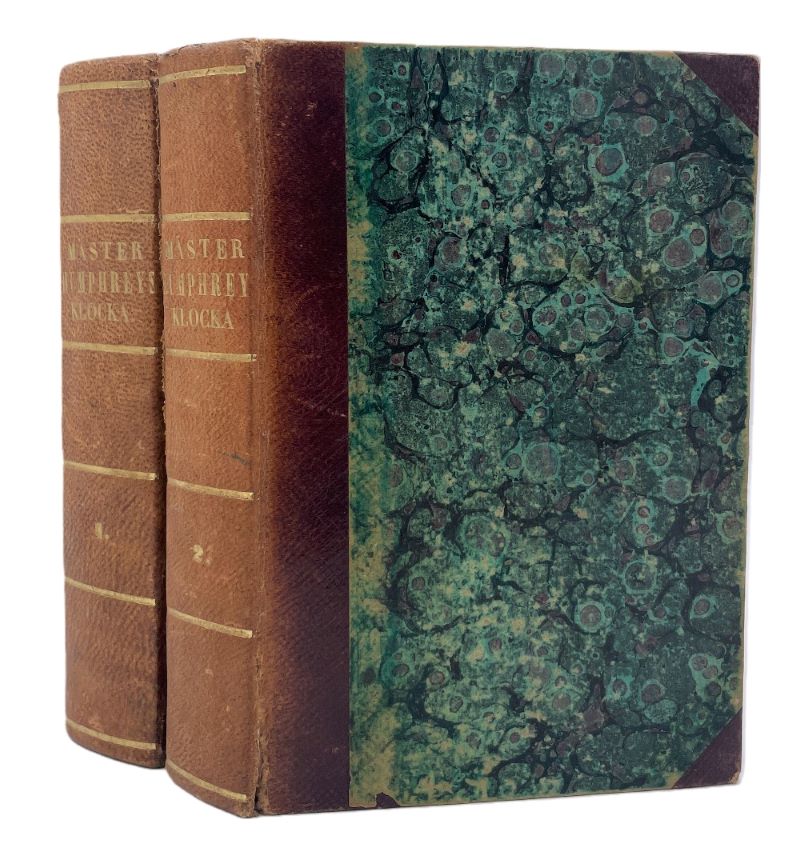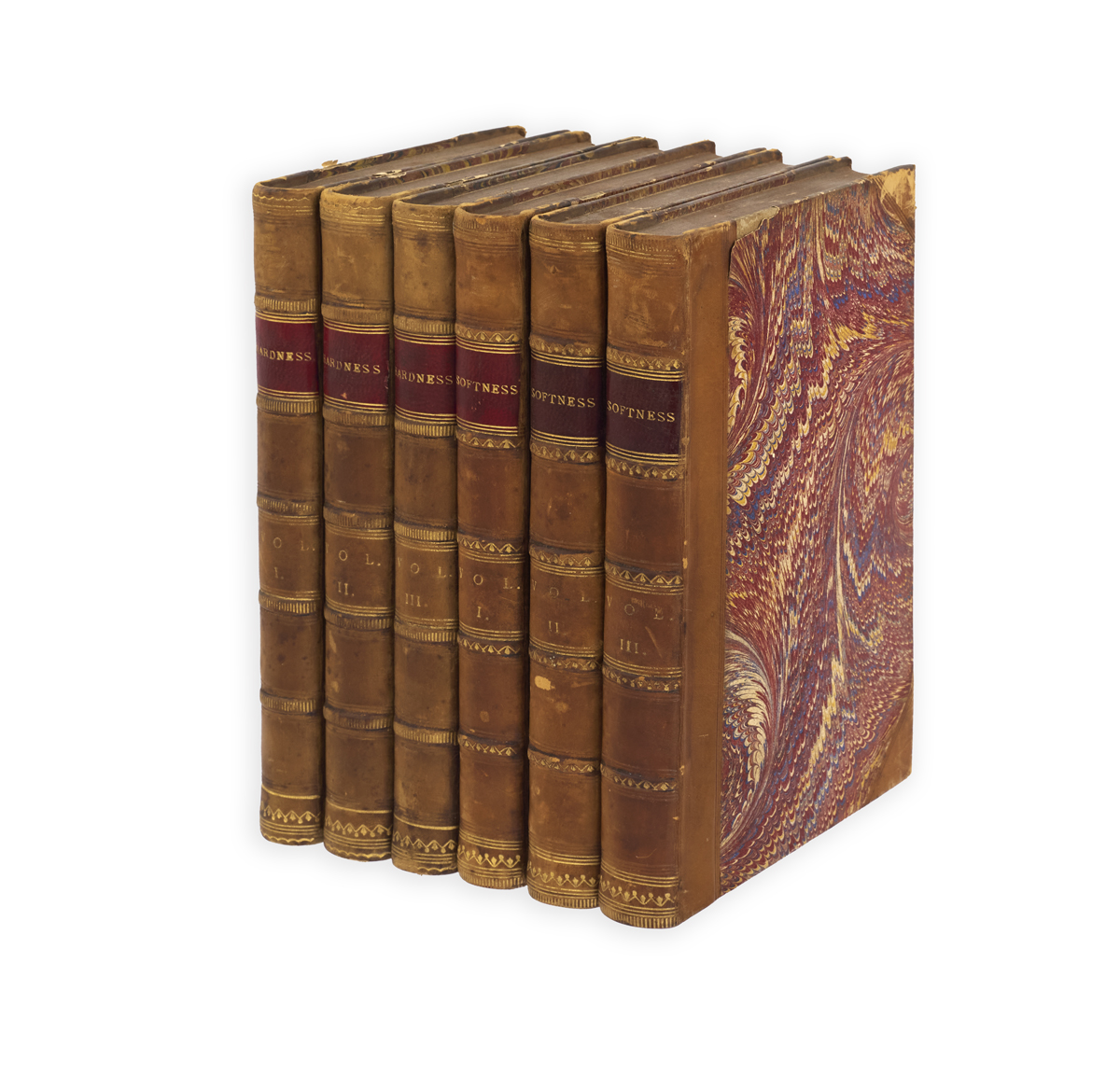THE MERRY BATCHELOR
LE SAGE, Alain René.
The History of Vanillo Gonzales, surnamed the merry Batchelor. In two Volumes. From the French …
London: Printed for G. G. and J. Robinson … 1797
2 vols., 12mo., pp. [22], 394, [2, errata and blank], and [10], 383, [1], wanting half-titles; contemporary mottled calf, gilt, black morocco labels, a very good copy; armorial bookplate, upside down at the end of volume I, of Sir Robert Johnson Eden, Bart. (1774-1844) of county Durham.
Added to your basket:
The History of Vanillo Gonzales, surnamed the merry Batchelor. In two Volumes. From the French …
First complete translation of Le Sage’s Histoire d’Estevanille Gonzalez, surnommé le garcon de bonne humeur (1734), itself a loose French adaptation of Vida y hechos de Estebanillo Gonzalez (1646), preserving only a few episodes of the Spanish original. Authorship of Vida y hechos is uncertain; while Esteban Gonzales was a real person, born in 1608, it is unlikely (according to Professor Marcel Bataillon) that he was the author, more likely that the novel was a literary imposture usurping his name and some details of his life. It has also been attributed to Luis Vélez de Guevara. Earlier English versions, incomplete, had appeared in The Spanish Libertines (1707) and The Comical History of Estevanille Gonzalez (1735). ‘The present, however, is certainly the first time it has appeared wholly in an English dress’ (Preface).
The picaresque Vanillo Gonzalez ‘contains exact portraits of a variety of real characters, moral, political, and literary; a series of lively and pleasant adventures; and many keen but just censures upon the vices and follies of mankind ... Where is the folly of pedantry more humorously exposed, the compunctions of avarice more correctly depicted, or the pretensions of empiricism more happily ridiculed, that in the characters of the old Knight, the Licentiate Salablanca, Dr. Arriscador, and his Coadjutor Potoschi? Can the female mind be more seriously warned against the dangers of coquetry than by the fate of Donna Innes; or the career of youthful vanity be more instructively checked than by the story of Don Ramirez de Prado?’ (Preface).
The Monthly Review was not quite convinced: ‘In the general turn of character and business, this novel very strongly resembles Gil Blas; and too frequently throws the interest on the side of roguery, fraud, and debauch, to be very favourable to morality; but it is full of incident, and of entertaining adventures, and seems to be not ill translated.’
Garside, Raven, and Schöwerling 1797: 40.

